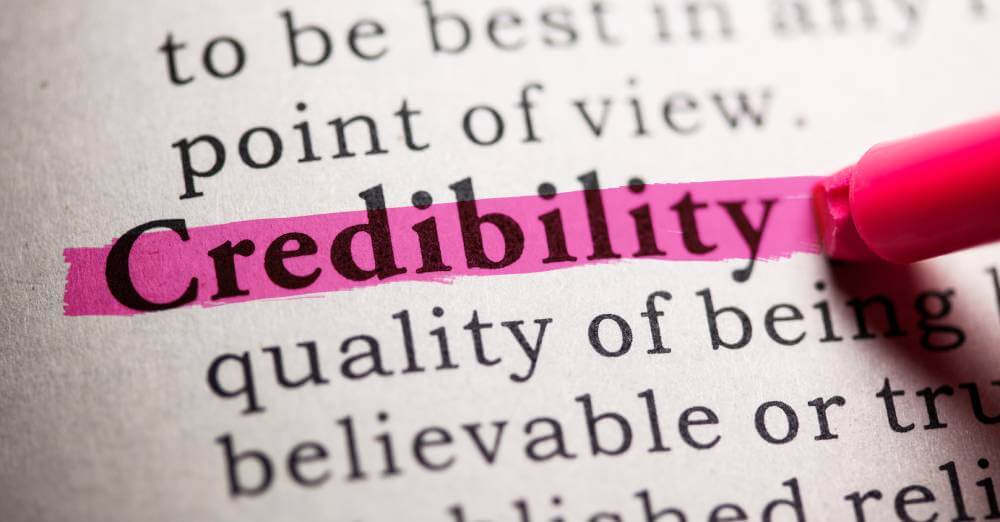External linking redirects your visitors to a website that is not your own. Admittedly, It sounds exceptionally counter-intuitive to want to redirect someone away from your page. You’re trying to drive your own traffic, so why would you then deliberately send them away. Well, it comes down to how your SEO rankings are determined.
There are a multitude of factors critical to SEO, one of which is the link structure on your page. Having quality inbound links from a variety of sources is critical. As is your internal link structure within your site, pointing visitors towards your high priority content, and a call to action. The third component is pushing outbound links, which admittedly, won’t move mountains the same way quality inbound links will. However, there can be some significant benefits, so let’s take a look at what these benefits might be, and how you can incorporate some external links into your content.
Improving Your Credibility
Adding trustworthy and relevant outbound links to your content dramatically improves your credibility. Citing sources for an academic paper is somewhat similar to external linking, so assuming you’re using reliable sources, it proves your content is based on sound research. Your readers will recognise that you are a well educated voice.
Improving your SEO
High quality content is usually linked to other high quality content. Link structure will help search engines determine the quality of your page, and this can be based upon the quality of any outbound and inbound links. The usefulness and relevance of your outbound links, especially if embedded with relevant anchor text, can help your content rank far more favourably.
Google can ascertain the authority of your site based on the external sources you’re linking too.
Networking and Relationship Building
Relationship building is a critical part of business strategy that is not overly measurable. However, curating relationships with experts, thought leaders, and content creators is hugely beneficial. There is obviously a great opportunity for backlinking in return, which has significant SEO and traffic benefits.
There is also the ability to leverage audiences off external sites. External linking is an easy and positive way to grow established connections in any industry.
Added Content Value
External linking can provide your readers with additional context. Links that provide additional information, back-up your content, or generally share interesting perspectives can create a far more satisfying reader experience. If you don’t have all the answers, and you point someone in a direction where they will understand a topic better, they’ll begin to associate your site as a great hub to find the best information available. This adds great value to your site!

Not everything is about measurable metrics and SEO. Balancing these SEO benefits to make sure your users have a great experience is important.
Do’s And Don’ts
It’s important to know where and when to send your visitors to external sites, so here’s a few best practice rules that you can follow.
1) Make Links Relevant
It sounds glaringly obvious, but make sure your page and the page you’re linking to share some common ground. Google wants to show relevant results. If your external links backs up your niche content, your search engine performance may improve. Some examples of outbound links you could use to provide more context could be:
- Backing up any facts with statistics or infographics
- Reports or articles that have shaped your thinking on certain niche topics you’re writing about
- Referencing the origins of your data and findings
- Citing unique ideas and perspectives about your chosen topic
Oh, and try not to link to any websites competing for the same keyword as your page, that would just be a bit daft.
2) Use Reputable Sources
The same applies with inbound links too, but focus on quality over quantity. Reference well documented, authoritative sites. This is for the benefit of the reader knowing they’ve got the correct information, and for the benefit of your SEO too. Linking to spammy or clickbait content could negatively impact your search engine results.

There are plenty of tools you can use to quantify the value of any external sites. SEMrush, for example, has a free site audit tool that could be useful! If you do have to link to what seems an untrustworthy site, you can use a nofollow tag, telling Google to essentially ignore your link reference.
3) Quality Over Quantity
Don’t overwhelm your readers with too many links. Your external linking structure should prioritise high quality links over high quantity. If you have too many outbound links on one page, Google could suspect spammy or promotional content, and rank you poorly. Search engines also have a recency bias for their SEO analysis. Just as new content you produce will be ranked favourably, the newer the content you’re linking to, the better.
4) Hidden Content & Access
For the best user experience don’t link to any content that is locked behind a paywall, or gated login section. It is not worth your readers time to be redirected somewhere, to then be asked to register, log in or pay. That is unless you’ve specifically mentioned that said piece of content is a paid or hidden page.
5) Anchor Text Embedding
Make sure when adding outbound links you’re using descriptive, keyword dense anchor text whenever possible. If it isn’t possible don’t try to force words in, but descriptive anchor text performs much better for SEO than just a plain URL. Google will determine the authority and relevance of any external pages partly based upon relevant anchor text.
6) When Not To Link
On your pages that are aiming to convert someone, drive traffic, or make your readers take some form of meaningful action, avoid using outbound links. Pages like landing pages, CTA locations, navigation bars, etc. should be used to direct people within your site to take action. You don’t want to direct people outside of your sales funnel if they’re already in the funnel!
Final Thoughts
External links can do wonders to validate your content, improving your credibility, your audience reach, and your user experience. There are multiple measurable benefits to your SEO performance, whilst you can also harness the power of networking, gaining backlinks, and establishing relationships in return.
It is important to know where, when, and when not to use outbound links, but correctly, external linking provides a solid foundation to your SEO and lead generation strategy. If you would like to find out more ways to improve your digital marketing strategy, please contact us here for a free consultation!






